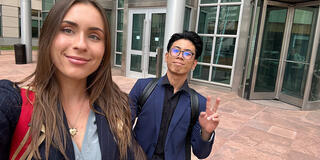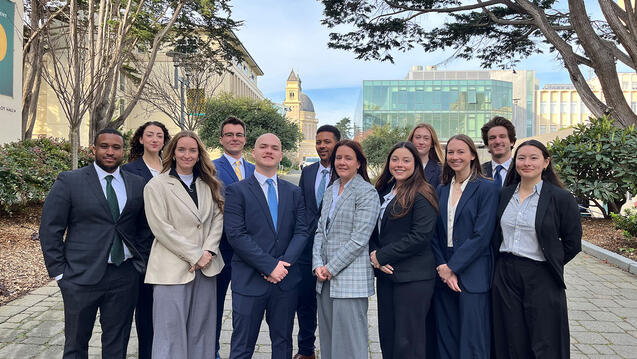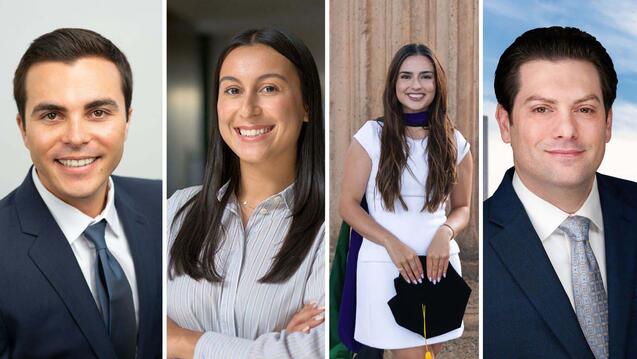Hands-On Learning: Students Monitor Landmark Human Rights Trial

This past spring, then-students and now alumni Shannon Labuschagne ’25 and Raniele Reyes ’25 put their classroom learning into action as part of the International Human Rights Law Clinic, traveling to Denver to monitor the landmark trial of U.S. v. Correa.
The trial was the first jury trial under the federal torture statute and concluded with the first conviction of a non-U.S. citizen on torture charges in a federal district court.
Because video recording was prohibited, the students were responsible for drafting daily reports to keep hundreds of Gambian victims and their families informed about the proceedings in real time. Working in partnership with the Solo Sandeng Foundation, the Center for Justice and Accountability, and the Stanford International Human Rights and Conflict Resolution Clinic, Labuschagne and Reyes saw firsthand how international coalitions pursue justice across borders.
“The world needs to know that there are consequences for violating international human rights law,” said Professor Lindsay M. Harris, director of the International Human Rights Law Clinic. “When a Gambian national can be tried in a U.S. court through the principle of universal jurisdiction, it sends a powerful message to those who order or carry out acts of torture: impunity will not be tolerated.”
For Labuschagne, the experience deepened her understanding of both international justice and the human dimensions of the law. “It was incredible to see how different organizations collaborate in the human rights field and to witness the mechanics of a trial unfold live,” she said. “This trial was about accountability. People flew from The Gambia to share their stories. It reminded me how important it is to navigate the ethical and moral tensions that arise in legal work like this.”
Hands-on opportunities are central to the law school’s and the International Human Rights Clinic’s mission. Students apply legal theory to real cases, working alongside attorneys, advocates, and communities seeking justice, while gaining insight into trial practice, evidence, and advocacy in complex issues.
“Even students who don’t plan to specialize in international human rights law gain invaluable experience,” Professor Harris said. “They learn how to work with litigation teams, communicate with survivors of human rights abuses, and engage with high-stakes legal processes.”
Following her May 2025 USF Law graduation, Labuschagne joined an environmental nonprofit as a legal fellow, a path that continues to reflect her clinic experience. “I’m continually struck by the parallels between human rights and environmental work: The shared values, challenges, and systems they aim to change,” she said. “The collaborative nature of the clinic gave me confidence and perspective. I can’t recommend it enough.”


